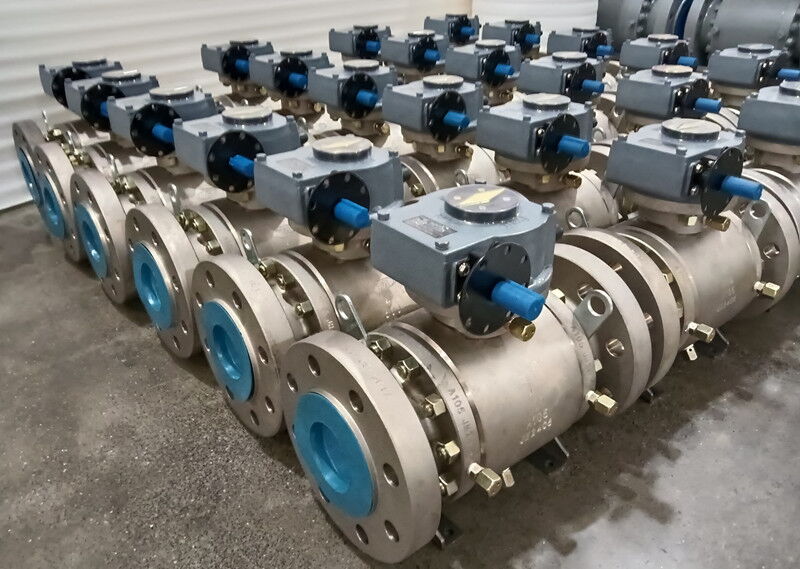Valve systems are essential for managing the flow of liquids, gases, and slurries in a variety of industries, including oil and gas and pharmaceuticals. These elements are necessary to guarantee that systems and processes run smoothly. But choosing the best valve might be difficult because there are so many different types on the market. When choosing a valve, it's critical to take into account a number of important elements in order to achieve best performance and efficiency. Some of the most crucial factors to consider when selecting valves for industrial applications will be discussed in this article.
When choosing a valve, it is crucial to comprehend the characteristics of the fluid being handled. The selection of valve material, design, and configuration can be greatly influenced by variables including viscosity, temperature, pressure, corrosiveness, and particle matter. For example, high-temperature applications can call for valves with improved heat resistance, whereas corrosive fluids might require valves built of particular alloys.
Important factors to take into account are the pressure drop across the valve and the flow rate. The flow characteristics of various valve types differ, including linear, equal percentage, and quick-opening. To guarantee the best control and efficiency, the flow characteristics of the valve must be matched with the particular needs of the application. Furthermore, choosing the appropriate valve size is essential to prevent excessive pressure drops or flow limits that could harm system performance.
Under the circumstances they are exposed to, valves must function consistently. It is necessary to consider variables like vibration, changes in pressure, ambient temperature, and possible exposure to corrosive environments. To guarantee safe and effective functioning even under difficult circumstances, valves rated for particular pressure and temperature ranges should be chosen.
To stop corrosion, contamination, or deterioration of the process medium, the materials used in the valves must be compatible with the fluids being handled. Numerous materials, such as carbon steel, brass, stainless steel, and different types of plastic, are used to make valves. The choice of materials should be carefully considered in order to guarantee compatibility with the surrounding environment as well as the process fluid.
Various valve types are appropriate for particular applications and provide unique benefits. Globe valves, ball valves, gate valves, butterfly valves, and check valves are common varieties, each with special characteristics and methods of operation. When choosing the right type of valve for a particular application, consideration should be given to factors including installation requirements, simplicity of maintenance, throttling ability, and shutdown capability.
A variety of methods, including pneumatic, electric, hydraulic, and solenoid actuators, can be used to manually manipulate or actuate valves. The requirements for process automation, response speed, dependability, and power source availability all influence the choice of actuation mechanism. Although automated valves have benefits like precise control, remote operation, and connection with control systems, they can also be more expensive initially and require more upkeep.
In industrial applications, where downtime can lead to large production losses, reliability is crucial. To guarantee long-term performance and reduce the chance of unplanned failures, it is essential to select valves from reliable manufacturers who are well-known for their quality and dependability. To enable prompt repairs and save downtime, further factors that should be taken into account are accessibility to technical support, spare part availability, and ease of maintenance.
The safety, dependability, and environmental sustainability of industrial operations depend on adherence to industry standards and laws. It may be necessary for valves used in crucial applications to fulfill particular certification requirements, such as FDA, ASME, ISO, or API standards. It is imperative to confirm that the chosen valves adhere to the pertinent industry and regional norms and laws.
Cost is a significant consideration, but it shouldn't be the only one used to choose a valve. A thorough cost-benefit analysis should be carried out instead, taking into account variables including the original purchase price, lifespan expenses, energy efficiency, maintenance needs, and possible downtime costs. Purchasing premium valves with exceptional performance and dependability could save money over time and improve operations.
When choosing valves, it is essential to consider future requirements and possible system expansions. Selecting modular valve designs that provide simple scalability, upgrades, and adjustments might help handle capacity expansions or future changes in process needs. Furthermore, choosing valves from producers with a broad range of products and a reputation for innovation guarantees access to cutting-edge technology and solutions as requirements change.
In summary, choosing the best valve for industrial applications necessitates carefully weighing a number of variables, such as fluid properties, flow demands, operating circumstances, material compatibility, valve type, actuation technique, dependability, cost considerations, regulatory compliance, and future flexibility. Businesses may guarantee the best possible performance, efficiency, and dependability of their systems while lowering risks and increasing operational uptime by carefully assessing these factors and collaborating with skilled engineers and suppliers.
JONLOO MACHINE MANUFACTURING CO.,LTD is a notable firm in the valve manufacturing industry. Oswal Industries Limited, known for its quality, inventiveness, and dependability, provides a wide variety of valves made to satisfy the various demands of industrial applications. They are a reliable partner for companies looking for superior valve solutions because of their dedication to quality, observance of industry standards, and emphasis on client satisfaction. The JONLOO company is the greatest option for businesses aiming for operational excellence since they provide valves that are exceptional in terms of performance, durability, and efficiency, whether they are used in the oil and gas, chemical processing, water treatment, or any other industry.

